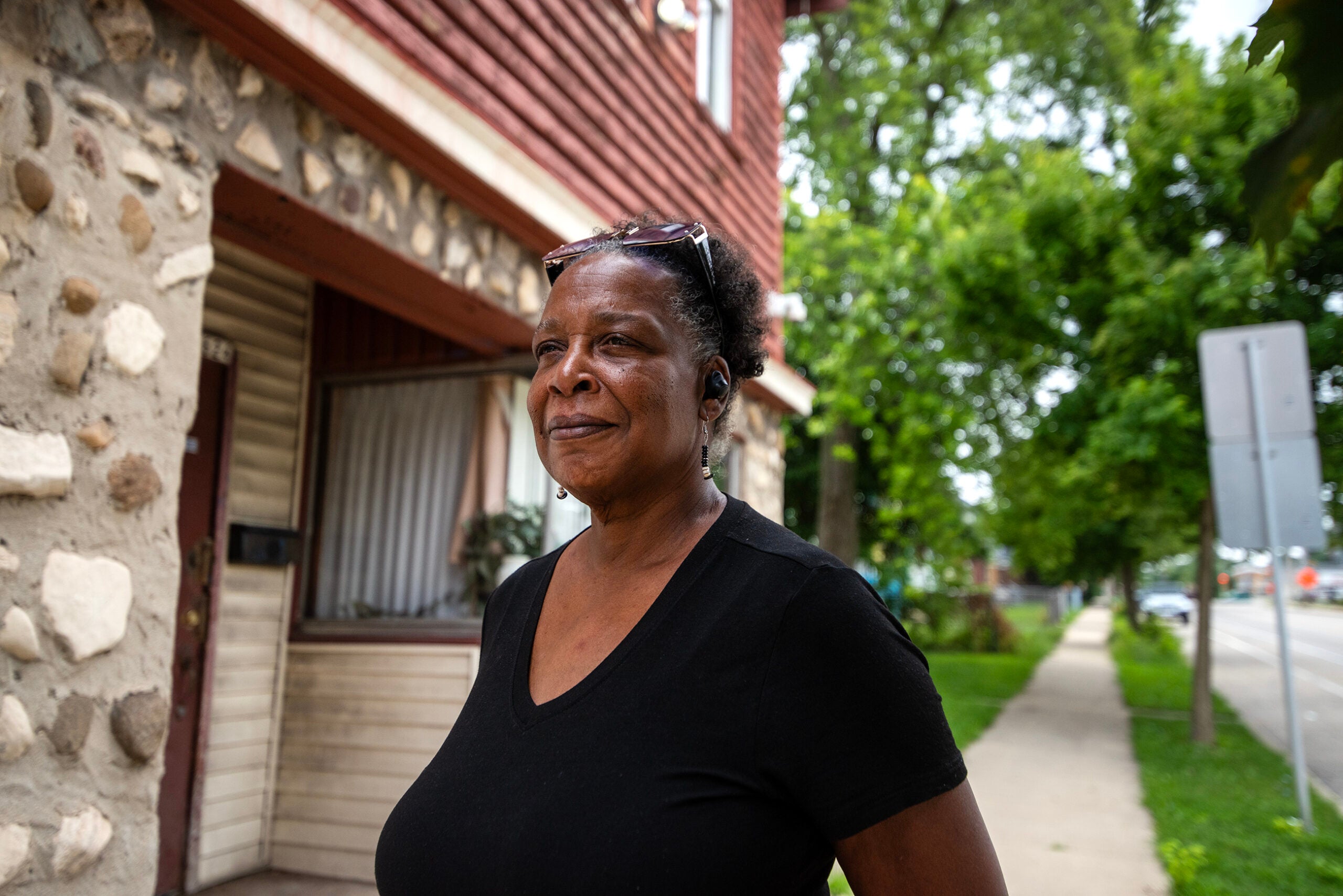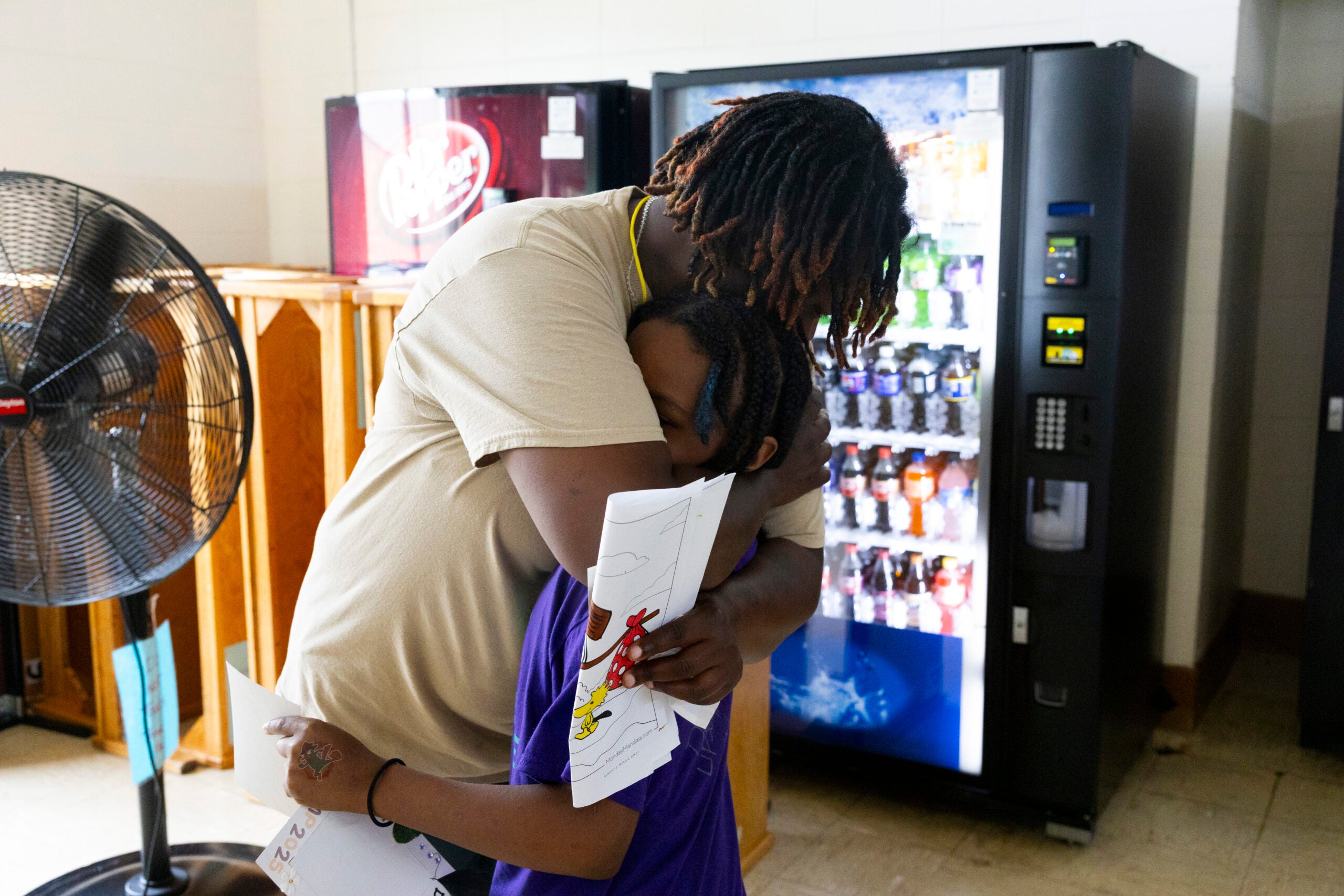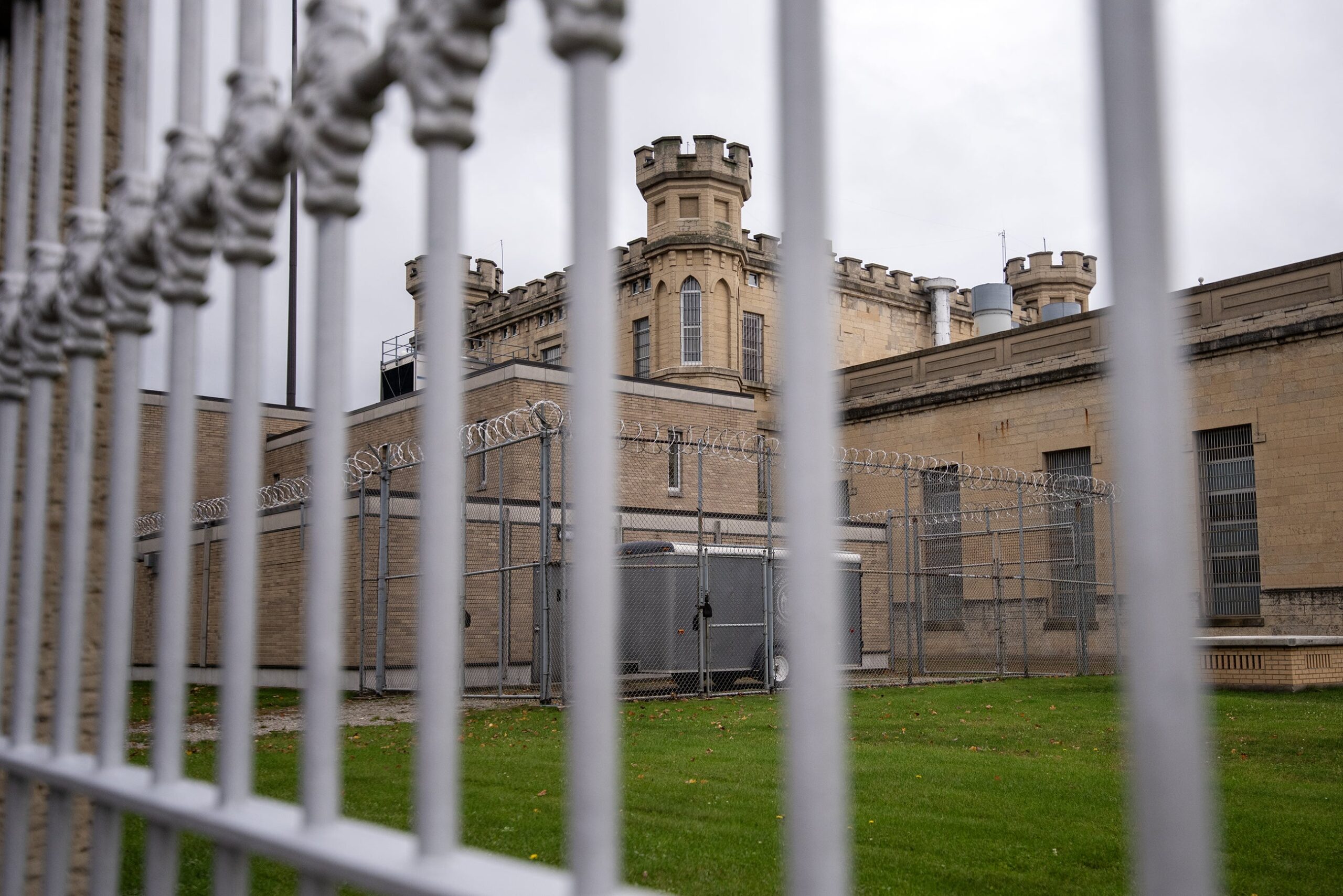A prison reform rally in Madison on Wednesday will feature testimony from the family of an inmate whose mental health deteriorated after he spent time in a segregation cell.
Janis Gilbert of Middleton said that her 25-year-old adopted son Aaron has been stripped of his mental health medications and held in solitary confinement several times since entering prison in 2012. Aaron’s birth mother drank and used drugs heavily while she was pregnant with him, and as a result he had mental defects associated with fetal alcohol syndrome.
Janis said that Aaron has been sane when he went to prison, but that when she visited him in August after he’d spent two months in solitary confinement, she barely recognized him.
News with a little more humanity
WPR’s “Wisconsin Today” newsletter keeps you connected to the state you love without feeling overwhelmed. No paywall. No agenda. No corporate filter.
“He looked like a wild man,” she said. “He screamed in gibberish for about ten minutes. There was paranoia, there was hallucinating — the whole nine yards.”
Aaron had been in trouble with the law for minor disorderly conduct incidents before landing in prison for being party to the crime of kidnapping and sexual assault. His mother said Aaron had agreed to drive a friend to Milwaukee, without realizing that the friend was kidnapping his girlfriend and planned to force her into prostitution. The friend, Andrew Meinholz, got a 20-year sentence for the crime. Aaron got a five-year sentence for aiding and abetting.
Janis said that since Aaron has been locked up, she and her husband can’t track the medications he may or may not be getting because of rules under the 1996 Health Insurance Portability and Accountability Act which prevent prison officials from sharing that information. However, she said she’s convinced that Aaron’s stints in solitary confinement have led to his current psychosis. She said he might have remained sane if he had been allowed to stay in the general prison population.
“Now, some people might say prisoners aren’t a civilized population,” said Gilbert. “We make them more uncivilized by keeping them in solitary confinement.”
Gilbert backs reforms that the faith-based group WISDOM is calling for at the rally on Wednesday, including establishing special mental health units in all state prisons. She blames the current use of segregation cells for inmates like Aaron on the defunding of community mental health services that occurred in the 1980s, which she said has forced prisons to become warehouses for the mentally ill.
DOC officials have said they are considering changes in the use of segregation, but so far have provided no details.
Aaron will be released next summer. He will be on community supervision for 25 years after that. The Gilberts fear that he may very well end up back in prison again — not for committing a new crime, but for breaking one of the strict rules of supervision. They say that if that happens, his mental health problems left un-medicated could land him back in solitary confinement.
Update: The Department of Corrections has written an emailed statement in response to the story. A spokesperson wrote that no information could be provided about a specific inmate without a court order. She added that the DOC has been working on reforming the use of segregation cells for some time, which would possibly include adding programming and psychological staff. She also added that “all allegations of abuse are taken seriously.”
Wisconsin Public Radio, © Copyright 2026, Board of Regents of the University of Wisconsin System and Wisconsin Educational Communications Board.





